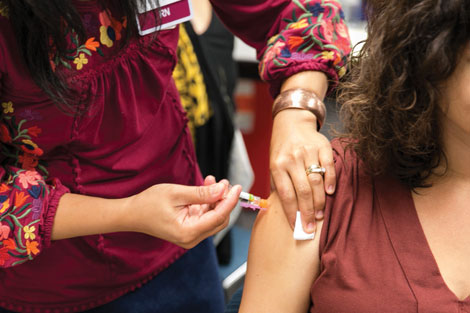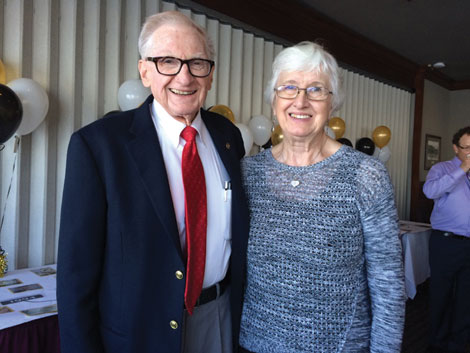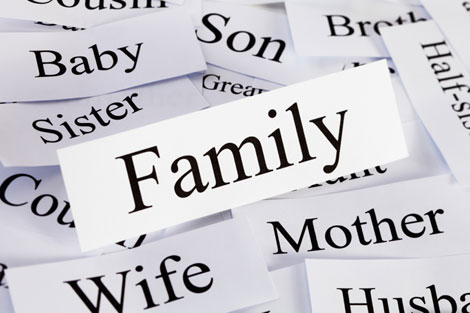Lecture series at UPS examines campaign for president
“What do you think? Who will win the White House?†asks every caring American. And from the curious and the cynical comes that other question: “And exactly how will he or she win?â€
Whether you are a reformer, a skeptic or a concerned citizen, the University of Puget Sound is inviting one and all to a free six-lecture series it will host Jan. 21 to April 28 on the race for president.
Political scientist Michael Artime and presidential historian Mike Purdy will provide analysis of the 2016 campaign and some historical insights to put today’s news into perspective. They will lay out the hot-button issues in the current contest and share some of the colorful stories behind two centuries of presidential elections—ever since George Washington was unanimously elected in 1789.
The lectures will be held from 7 to 8:30 p.m. on Thursdays in McIntyre Hall, Room 103, situated on Jones Circle on the university campus. The one-hour presentations will be followed by half-hour Q&A sessions, allowing attendees to learn more and share their own views.
“We could see a brokered Republican convention in 2016, and that’s something we’ve not had since 1952,†says Purdy, a presidential historian, consultant, author and UPS alum. “Normally the convention is just pageantry, with the candidate already selected, but this time delegates could be free to vote as they wish on the second round, which will mean some real horse-brokering going on. At this point it’s really a very fluid situation.â€
This possibility will be discussed in the first lecture, “The Long Road to 1600 Pennsylvania Avenue,†on Jan. 21 at 7 p.m.
Artime, adjunct professor at Puget Sound and Tacoma Community College, and Purdy will also discuss the controversial Citizens United Supreme Court case that led to the creation of super PACs, which allow corporations and individuals to put unlimited funds behind their favorite candidates.
Other dates for lectures and their topics are Feb. 18 (“Who Wants to be President?â€), March 10 (“What do the Candidates Believe?â€), March 24 (“What Voters and States Will Elect the Next President?â€), April 14 (“How Accurate are the Polls?)â€, and April 28 (“Media Marketing and the Making of the Presidentâ€).
“Initially we hope to get students and the public interested in the political process, and if they are, then voting is the natural outcome,†said Artime. “Ultimately we hope that this understanding will help motivate students and citizens to be politically active and do more about the issues they care about.â€
The election series is sponsored by the University of Puget Sound Forensics Program, which trains the student debate team, and the Department of Politics and Government. Members of the debate team will help with the event, and many will be present to keep the speakers on their toes, a university spokeswoman said.


